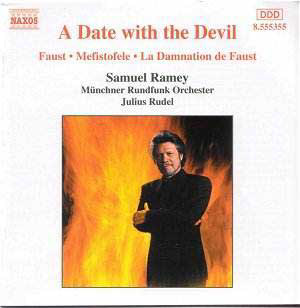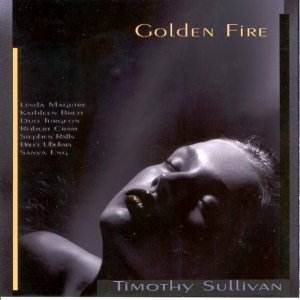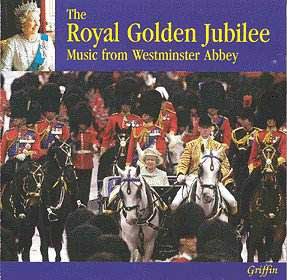 Composer: Samuel Ramey
Composer: Samuel Ramey
Works: A Date With The Devil – arias from the operas BERLIOZ La Damnation de Faust, MEYERBEER Robert le Diable, BOITO Mefistofele, OFFENBACH Les contes d’Hoffmann, GOUNOD Faust, STRAVINSKY The Rake’s Progress
Performers: Samuel Ramey (bass), Münchner Rundfunk Orchester, Julius Rudel (conductor)
Recording: Recorded Munich, October 2000
Label: NAXOS
Samuel Ramey, a towering figure in the operatic world, has long been synonymous with the archetypal portrayal of the devil in the operatic canon. His latest album, “A Date With The Devil,” assembles a selection of arias from prominent operas that depict this diabolical character, showcasing Ramey’s storied career and the multifaceted roles he has embodied over nearly three decades. However, as with any artist who has traversed the relentless passage of time, this recording invites scrutiny not only of the repertoire but of the artist’s evolving voice and interpretative choices.
The performances on this disc encapsulate several operatic depictions of the devil, from Berlioz’s Faust to Stravinsky’s The Rake’s Progress, reflecting a rich historical tapestry of musical and dramatic narrative. Yet, one cannot help but notice the wear on Ramey’s voice, particularly in the opening arias from La Damnation de Faust. Here, the once-stalwart bass struggles with focus and stability; the timbre, once resonant and commanding, now exhibits a noticeable wobble that detracts from the character’s gravitas. The vocal production here feels dry, lacking both the lushness and the dramatic intensity that characterized Ramey’s earlier interpretations, such as his celebrated 1988 recording of Mefistofele.
As the album progresses, there are moments where Ramey’s artistry shines through, particularly in the selections from The Rake’s Progress. His ability to convey narrative through declamation re-emerges, allowing glimpses of the incisive characterization for which he is renowned. In “The Rake’s Progress,” Ramey’s vocal interpretation regains some of its former bite, suggesting that while the voice has aged, the interpretative acumen remains intact. However, the fragility of his current vocal state becomes particularly evident in “Scintille, diamant” from Mefistofele, where the demands of legato expose the limitations of breath control, leading to a choppy delivery that feels at odds with the music’s lyrical demands.
Julius Rudel’s conducting offers a steady hand, guiding the Münchner Rundfunk Orchester through these diverse operatic landscapes with a sense of urgency and commitment. Yet, one is left questioning the necessity of the additional instrumental pieces included, such as the Rákóczi March and some Liszt transcriptions, which dilute the focus on Ramey’s vocal prowess. The engineering of the recording presents a clean, if somewhat sterile, sound, lacking the warmth that would elevate the overall listening experience. The balance between orchestra and soloist is generally well managed, though the subtleties of Ramey’s voice sometimes struggle against the orchestral backdrop.
This release serves as both a celebration of Ramey’s illustrious career and a poignant reminder of the passage of time. While it provides an interesting survey of his interpretations of the devil’s roles, it cannot escape the reality of vocal decline that accompanies a lengthy career in such demanding repertoire. Ramey’s unique interpretative insights remain a significant draw, yet they are increasingly tempered by the technical challenges presented by his aging instrument. The album stands as a testament to the artist’s legacy, but it also highlights the bittersweet nature of an artist’s journey through time, leaving one to reflect on the remarkable heights he once achieved and the inevitable toll that such a path exacts.



